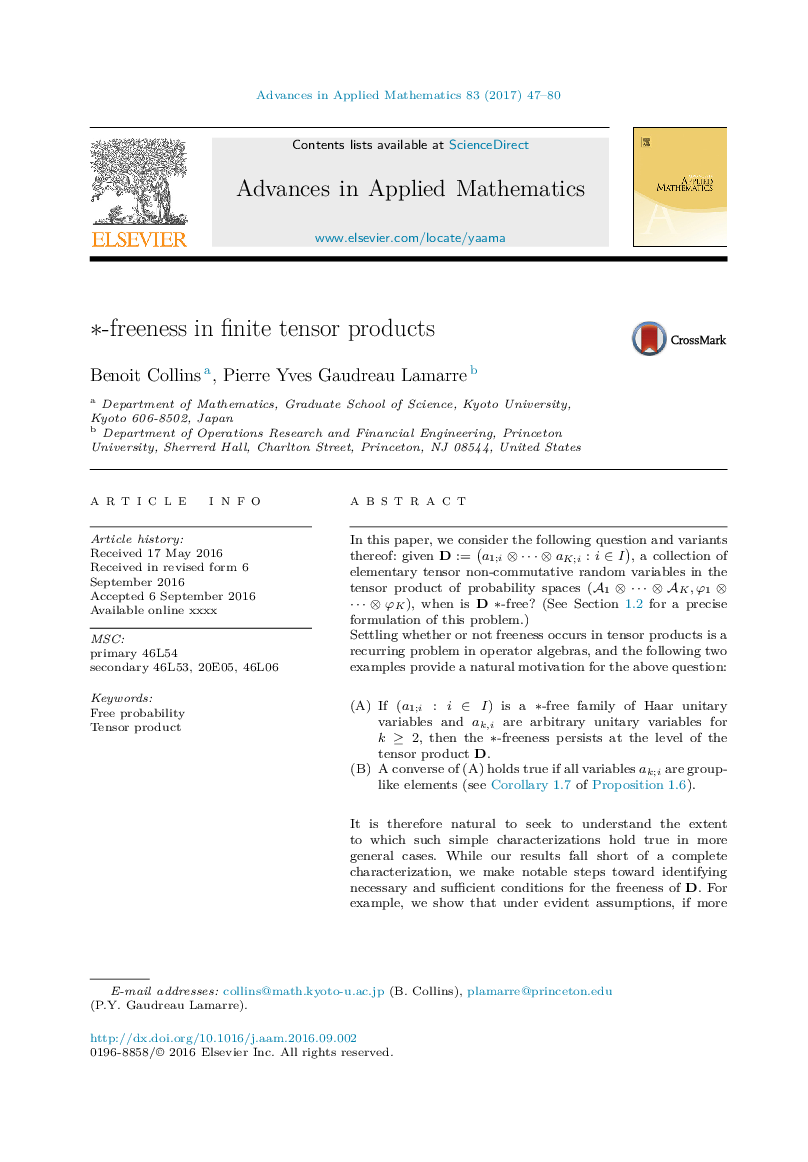| کد مقاله | کد نشریه | سال انتشار | مقاله انگلیسی | نسخه تمام متن |
|---|---|---|---|---|
| 4624480 | 1631613 | 2017 | 34 صفحه PDF | دانلود رایگان |
In this paper, we consider the following question and variants thereof: given D:=(a1;i⊗⋯⊗aK;i:i∈I)D:=(a1;i⊗⋯⊗aK;i:i∈I), a collection of elementary tensor non-commutative random variables in the tensor product of probability spaces (A1⊗⋯⊗AK,φ1⊗⋯⊗φK)(A1⊗⋯⊗AK,φ1⊗⋯⊗φK), when is D ⁎-free? (See Section 1.2 for a precise formulation of this problem.)Settling whether or not freeness occurs in tensor products is a recurring problem in operator algebras, and the following two examples provide a natural motivation for the above question:(A)If (a1;i:i∈I)(a1;i:i∈I) is a ⁎-free family of Haar unitary variables and ak,iak,i are arbitrary unitary variables for k≥2k≥2, then the ⁎-freeness persists at the level of the tensor product D.(B)A converse of (A) holds true if all variables ak;iak;i are group-like elements (see Corollary 1.7 of Proposition 1.6).It is therefore natural to seek to understand the extent to which such simple characterizations hold true in more general cases. While our results fall short of a complete characterization, we make notable steps toward identifying necessary and sufficient conditions for the freeness of D. For example, we show that under evident assumptions, if more than one family (ak,i:i∈I)(ak,i:i∈I) contains non-unitary variables, then the tensor family fails to be ⁎-free (see Theorem 1.8 (1)).
Journal: Advances in Applied Mathematics - Volume 83, February 2017, Pages 47–80
